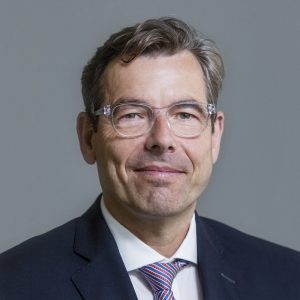Even if the new cultural quarter is not going to be a Humboldt museum, their lives and work loom so large in the history of ideas that they provide numerous connections with the Humboldt Forum’s cultural programme. Like complementary poles, they bring together antithetical yet related forces into a whole. On the one hand, the mobile and daring life of Alexander the globetrotting natural scientist, on the other, the philopatric, armchair-travelling character of Wilhelm the sedentary top diplomat, initiator of the
Berlin Museumsinsel and educational reformer: nature studies vs. language studies; contemplation vs. intellectual restlessness. “It was like that between us from the beginning. Always the most trenchant contrast, yet close cohesion at the same time.” The tension and similarities between these cosmological movements of thought form something resembling Humboldtian principles. Many are strikingly topical and will shape the Humboldt Forum’s programme:
Linking self with world
With their unprecedented, self-reflective cosmopolitan outlook, the two brothers were able to engage with non-European cultures without prejudice – in analysis of occidental traditions and contrary to the “mechanical thinking of the Europeans”. They recognized the significance of an intercontinental transfer of knowledge and culture, establishing a global information network between Bombay, Bogotá, Sydney and New York.
Everything is interaction
Their multidimensional descriptions of processes and dependencies, which take into account both human and non-human life forms, are highly topical. “Comprehending nature as a whole that is moved and animated by inner forces” evinces a dynamic view of the world: “Every life form is part of a complex network.” Alexander expressed this as his most important insight – the interlinking of the general with the particular, the small with the great, the far with the near.
Multiplicity of perspectives
Both brothers realized that getting to the bottom of things was a highly complex undertaking, since one and the same object can be perceived in very different contexts. Their bold espousal of a forward-thinking, progressive attitude is reflected in their identification of geo-ecological problems in a way that was positively visionary for the time; in their explicit criticism of colonial power structures; and in their advocacy for a multipolar world.
Knowledge is power
The will to achieve something through questioning research and explorative learning, to be socially relevant, to provide impulses for critical thinking, is the motivation underpinning all their activities. Who speaks, and from what perspective? Who decides what the world is? What is the half-life of scientific findings?
Popularizing and sharing knowledge
The Humboldt brothers were interested in opening new spaces with free access for a broad public and in presenting knowledge in a vivid manner that appealed to the senses and the imagination. Their transdisciplinary, nomadic view of science, in which a wide range of fields – from ecology through social science and climate research, ethnology and art history to subject-specific methodologies – was based on the principle of the division of labour.
Our cultural programme at the Humboldt Forum will follow this and other Humboldtian principles, applying and developing them according to the conditions and challenges of the contemporary world. Thus this new location will be not merely a stone monument to our two patrons, but a living,
popular forum for encounters, discussion, wonder and learning, insights and cooperation in a complex, contradictory and multifaceted world. In this way we will show how incredibly topical and valid the Humboldtian principles continue to be.
